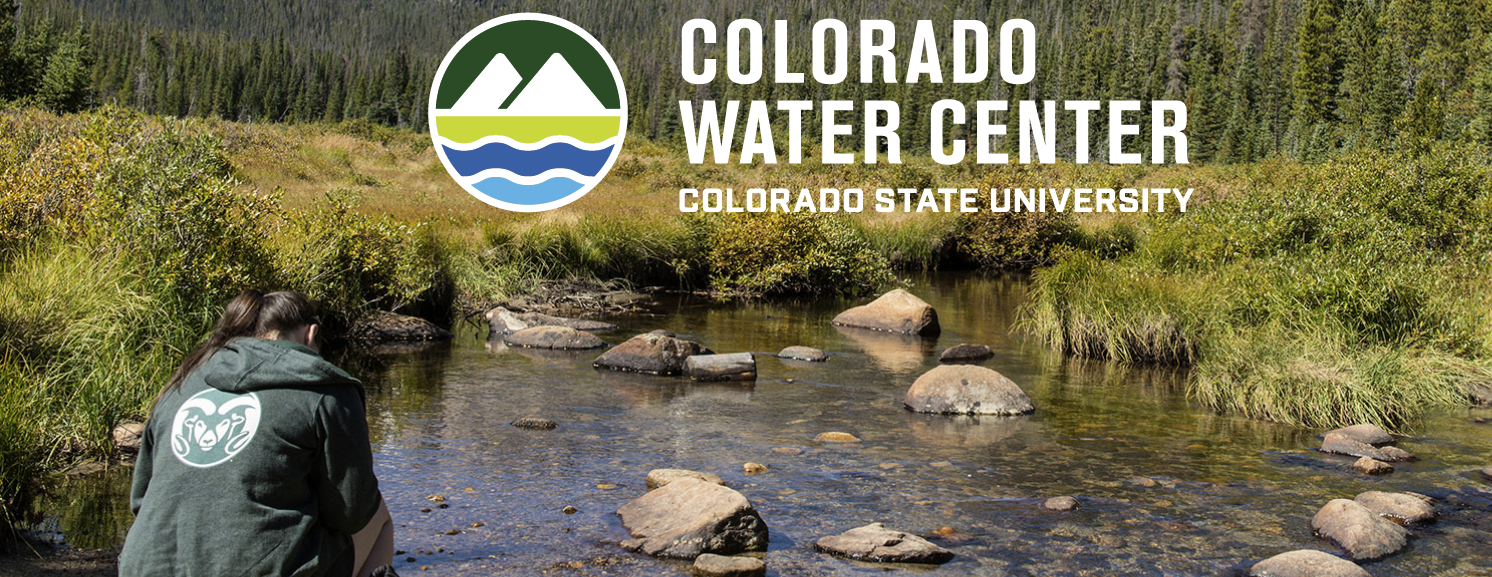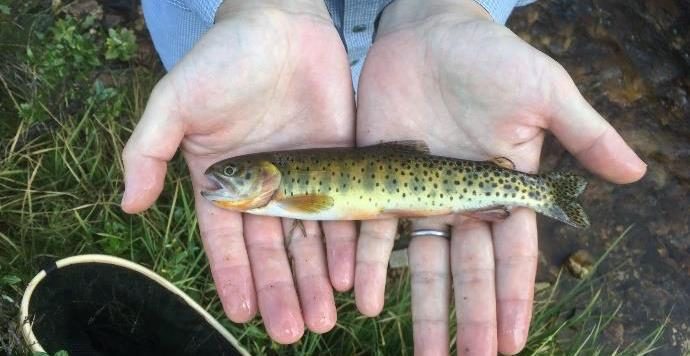
Water managers and policymakers are facing increasingly urgent threats to water resources worldwide and interdisciplinary tools and approaches may hold the answers to addressing these challenges. The Colorado Water Center, designated by the federal State Water Resources Research Act Program as the research institute for the state’s water resources, has announced awards of nearly $170,000 to provide seed funding for four Colorado State University research teams, two faculty fellows, and two education and engagement projects for the 2019-20 academic year.
The annual competitive grants program is one avenue through which the Center catalyzes water research, education and engagement across the state, as part of CSU’s land-grant mission. Awards support interdisciplinary collaboration and creative scholarship among the University’s faculty and students. The goal is to accelerate progress in research and enable both academic and experiential investigations into water resource challenges and opportunities.
The proposals funded for 2019-20 come from a broad range of disciplines, including engineering, natural resources, and agricultural sciences.
“CSU has a very strong and diverse group of faculty engaged in compelling water problems of the twenty-first century,” said Reagan Waskom, director of the Colorado Water Center. “Our goal with this competitive grants program is to help them increase the effectiveness and impact of their research.”

Broad water research
Aditi Bhaskar, an assistant professor in the Department of Civil and Environmental Engineering, will lead a research team that hopes to harness the power of crowdsourced monitoring to better understand urban street flooding. Not only will this method generate more robust on-the-ground data than is possible with sensors, this pilot project will also provide a foundation for integrating social media with a new Flood Tracker citizen science app.
John Hribljan, a research scientist in the Department of Forest and Rangeland Stewardship, and his team will investigate how peatlands in western Washington respond to changes in precipitation and temperature over time. Despite peatlands’ significant role in global carbon storage, uncertainties remain in how these systems respond to hydrologic alterations from changing climate and land use. This research will inform regional wetland management and has far-reaching implications for more northern peatlands.
Kristen Rasmussen, an assistant professor in the Department of Atmospheric Science, will use high-resolution modeling to investigate how predicted changes in climate will modify the snowpack and hydrology of the Rocky Mountains. By generating a better understanding of future snow dynamics – especially given snow’s complex interactions with the atmosphere, land cover, and terrain – her team’s work will also inform management efforts for Rocky Mountain National Park and surrounding areas.
Jay Ham, a professor in the Department of Soil and Crop Sciences, was awarded the Center’s inaugural Food-Water-Sustainability grant, which is funded in partnership with the School of Global Environmental Sustainability and the CSU Agricultural Experiment Station. Irrigation water management in agricultural and urban systems is currently hamstrung by a lack of affordable, real-time, soil moisture data; Ham’s research team seeks to remedy this gap by using the Internet of Things and cloud computing to develop better technology and infrastructure for data collection, as well as education resources for researchers deploying these new tools. Backed by research to increase soil moisture monitoring efficiency and sustainability, the end-product will be open-source and available for purchase online.
Faculty fellows
Yoichiro Kanno, an assistant professor in the Department of Fish, Wildlife, and Conservation Biology, and Michael Ronayne, an assistant professor in the Department of Geosciences, were awarded faculty fellowships by the Center. By tracing trout movement and exploring how habitat features impact their genetics, Kanno plans to produce research that will provide support for the restoration of greenback cutthroat trout in the Cache la Poudre basin. Ronayne will study the hydrogeologic processes of complex multi-aquifer systems.
Education and engagement projects
For the first time since its competitive grant program was launched at CSU in 2014, the Water Center also will fund two education and engagement projects: one led by Steven Fassnacht, professor in the Department of Ecosystem Science and Sustainability; and the other by Amy Kremen, research project manager in the Department of Soil and Crop Sciences.
Fassnacht’s team will create high school curriculum that integrates water science and poetry, the impact of which will be twofold: students, as well as their educators, will gain a better understanding of the links between the humanities and the environment – specifically ecology, climate, and hydrology – and, they hope, students will be inspired to study water and environmental sciences at the college level. Kremen and her team will also develop curriculum, one for a “Master Irrigator” education and training program in Northeastern Colorado. Her project, complemented by state and local policy efforts, will target producers and crop consultants, encouraging them to adopt water-use efficiency and water conservation practices that will ultimately help push the region toward fulfilling its water conservation goals.